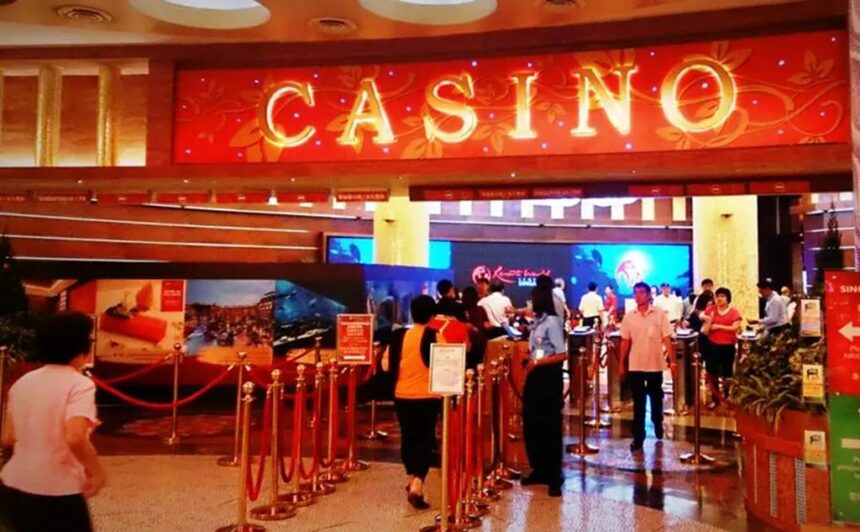The Thai government has introduced strict entry rules for locals as part of its plan to develop a major casino industry aimed at boosting tourism. The updated proposal, revealed on Monday, was revised to address criticism from anti-gambling groups.
Under the draft regulations, Thai citizens would need to maintain at least 50 million baht in fixed deposits for at least six months to gain access to casinos. The guidelines, prepared by the Office of the Council of State, also include an entry fee capped at 5,000 baht.
These measures are expected to exclude a large portion of the population, as Thailand’s per capita GDP is about $7,300, according to government data.
While most gambling activities remain illegal in Thailand, underground betting is widespread. Analysts suggest domestic players could attract foreign investors, who are monitoring the proposed laws closely.
A report by Citi last year estimated that nearly half of Thais over the age of 20 could become casino users. This positions Thailand as a potential contender to become the world’s third-largest gambling hub.
However, the high entry fee and deposit requirement significantly limit access to wealthier individuals, according to Daniel Cheng, a gaming consultant based in Singapore. He compared the rules to foreigner-only casinos in South Korea, stating the restrictions might deter locals from participating.
Public consultations on the revised law are scheduled from February 15 to March 1. Once hearings conclude, the proposal requires cabinet approval before moving to parliament for further discussion.
While current gambling in Thailand is limited to state-controlled horse racing, lotteries, and certain sports like boxing, other Southeast Asian countries have legalised casinos. Only a few, such as Singapore, have successfully attracted global operators like Las Vegas Sands Corp due to strict regulations.
The Thai government, led by the Pheu Thai party, aims to generate over 12 billion baht annually from the casino industry. Officials expect at least 100 billion baht in new investments, with foreign tourism potentially increasing by 5% to 10% each year.
The draft also states that casino operations cannot exceed 10% of the total complex area. Tourism remains a significant driver of Thailand’s economy, with the government forecasting 38 million foreign arrivals this year, close to pre-pandemic levels.
Despite the potential economic benefits, a recent poll revealed that most Thais oppose the plan. Critics, including some political parties, argue that introducing casinos might worsen social issues.
Concerns Raised Over Casinos in Thailand
The Thai Health Promotion Foundation, in partnership with the Centre for Gambling Studies at Chulalongkorn University, shared findings showing that over 6 million people face a risk of gambling-related problems.
Experts have expressed concerns about the creation of so-called “entertainment complexes,” pointing out that casinos are often linked to money laundering activities.
Dr. Pongthep Wongwatcharapaiboon, director of the Thai Health Promotion Foundation, stressed the role of technology in influencing gambling habits. He noted the growth of online platforms, which attract users with constant access and enticing promotions.
A study led by Assoc. Prof. Nualnoi Treerat from the Centre for Gambling Studies uncovered troubling statistics. Conducted between November 15-27, 2023, the survey included over 7,000 participants aged 15 and older from 24 provinces.
The findings revealed that 99.3% of respondents knew someone who gambled. Among gamblers, children made up 21%, and youth accounted for 26%. The study estimated that 1.06 million children (ages 15-18) and 3.92 million youth (ages 19-25) were involved in gambling, marking a rise compared to 2021.
The harmful effects of gambling are widespread. Around 45 million people reported challenges, including financial difficulties, mental health struggles, family disputes, and social isolation.
Asst. Dr. Natchapol Jittirat from Chulalongkorn University highlighted issues with the Comprehensive Entertainment Venue Act. He warned that casinos not only harm gamblers but also create opportunities for money laundering.
He cautioned that weak regulations could damage Thailand’s reputation with international organisations such as the FATF. This could lead to the country being placed on the Grey List, which might hurt international trade and investment opportunities.
Related News:
Police in Chiang Rai Take Down Gambling Network, 8 Arrested

Geoff Thomas is an award winning journalist known for his sharp insights and no-nonsense reporting style. Over the years he has worked for Reuters and the Canadian Press covering everything from political scandals to human interest stories. He brings a clear and direct approach to his work.














